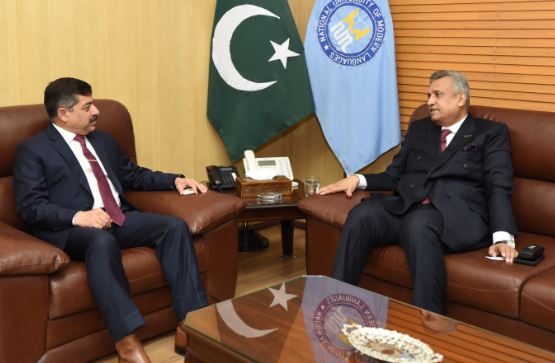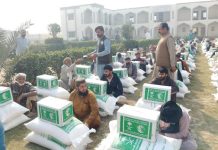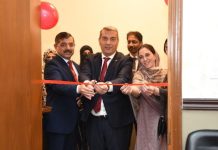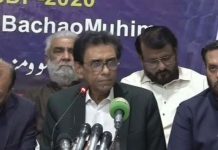DNA
ISLAMABAD, 5 NOV: A delegation from the Islamabad Chamber of Commerce and Industry (ICCI), led by its newly elected President, Nasir Muhammad Qureshi visited the National University of Modern Languages (NUML) today. The delegation met with NUML’s Rector, Major General (Retd) Shahid Mehmood Kayani HI(M), in his office, where they discussed strategies to bridge the gap between academia and industry and equip students with critical professional skills. Director General/Pro-Rector Resources NUML Brig Shahzad Munir was also present during the meeting.
Rector NUML congratulated Nasir Qureshi on his recent election as ICCI President and extended his best wishes for a successful tenure.
Emphasizing the importance of academia-industry collaboration, Rector NUML highlighted the role of educational institutions in driving industrial and economic growth through partnerships with local industries. “Strong linkages between universities and industry are essential for enhancing productivity, efficiency, and competitiveness. Universities can play a pivotal role in addressing industrial challenges and contributing to the country’s economic development,” he underscored.
In the meeting, Rector NUML Maj Gen (r) Shahid Mehmood Kayani underlined the need for greater coordination between researchers and the local industry, encouraging industry leaders to share their challenges so that academia could offer practical solutions. He stressed that such collaboration would provide students with hands-on experience, thereby enhancing their employability and contributing to national development.
President ICCI assured of their full support in building a strong and sustainable academia-industry partnership. They expressed hope that this cooperation would foster industrial growth in the region and benefit both NUML students and local businesses.
The collaboration between NUML and ICCI marks a significant step toward a mutually beneficial relationship aimed at bridging the gap between academic research and industry needs, ultimately contributing to the broader socio-economic landscape of Pakistan.












